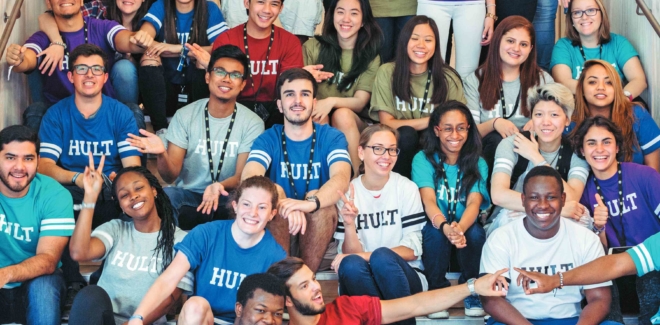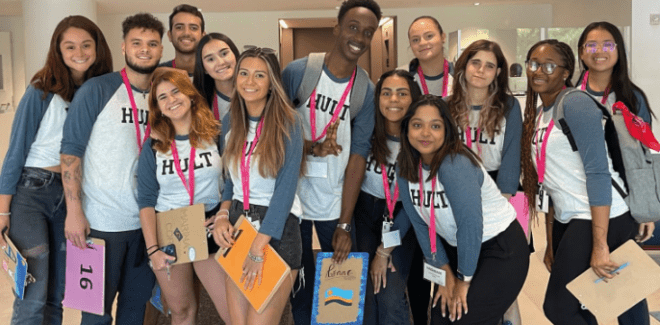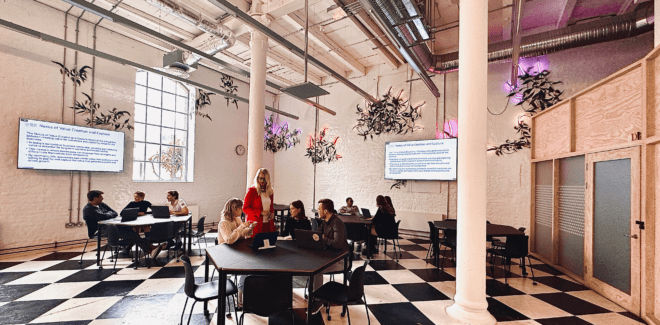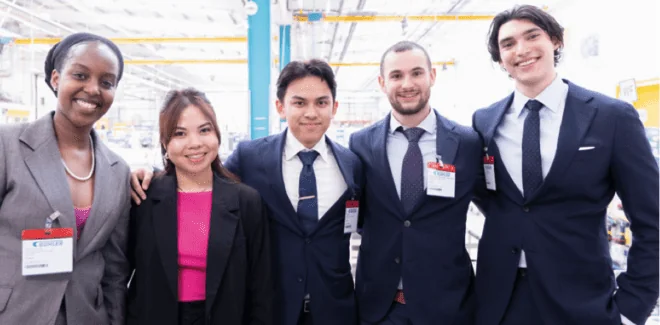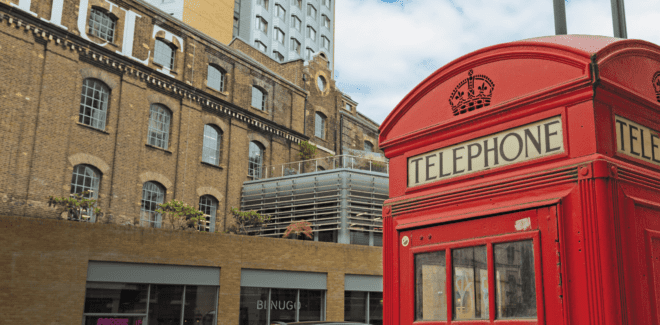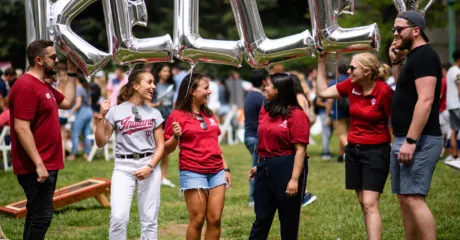The Hult International Business School placed No. 38 in the 2023 rankings – dropping 6 places from last year’s No. 32 in the 2022 rankings. The B-School had been more lenient each year with their admissions process, with an acceptance rate of 56% for the most recent incoming class compared to 48.21% for last year’s incoming class.
The average SAT score for the most recent incoming class was 1236 – down a bit from last year’s average of 1245. Of the three methodological categories, their strongest was in Academic Experience, coming in 20th.
Hult graduates have remarkably strong employment outcomes. This year, the Class of 2023 saw strong employment outcomes – 94.20% of the Class of 2023 landed a full-time job within three months of graduation compared to 96.39% of the Class of 2022. A solid 69% of the Class of 2023 had a business-focused internship before graduating, compared to the past four years when the B-School held a steady rate of 70%.
PRACTICAL APPLICATION-FOCUSED CURRICULUM
Hult’s Bachelor of Business Administration (BBA) is designed around the widely-agreed upon truth that to master a skill—any skill—it must be practiced. Practical learning challenges are integrated into the entire program, ensuring students understand the relevant theory while developing the mindsets and skills essential for a career.
Through live client consulting, hackathons, business simulations, and complex team projects, students apply contemporary theory to creatively solve the challenges businesses are facing right now.
Each year of the degree, students can choose to study at one or many of Hult’s campuses in central Boston or London, with optional Summer Programs in Boston, London, San Francisco, and Dubai. Students study alongside others of over 150 nationalities across campuses and gain international experience and differentiate themselves as global professionals.
Hult students are assessed throughout the BBA program on the essential mindsets and skills that make an exceptional businessperson—and what matters most to employers. Each student has a personal career and development coach that will work with them to evaluate their skills, better understand their strengths and weaknesses, and help to connect all of their learnings with future career goals.
FOUR UNIQUE CAMPUSES
Hult offers its curriculum across four different campuses. London and Boston are the home campuses, with Dubai and San Francisco being summer rotation campuses. The benefits of having such an expansive presence is two-fold: On one hand, students can gain a truly global perspective in their education. Hult is home to students from 150 nationalities, with no more than 8% of students from any one nationality.
“The business program was very open and diverse,” one alumni said. “We had professors and students from many different areas of the world. This opened my eyes to many different perspectives.”
On the other hand, a global presence makes the Hult degree valuable and recognized. Hult students can graduate with both a U.S. and U.K. degree and the B-school is the only U.S. school to be accredited by the three most prestigious accrediting bodies: AACSB, EQIUS, and AMBA.
The practical application of Hult’s curriculum and its unique global rotational opportunities are the aspects that make a Hult degree one worth pursuing.
Alumni say:
“Participating in the Hult Business Challenge was a pivotal part of my years at Hult, as it provided practical preparation for real-world experiences in any industry. Collaborating with individuals from diverse backgrounds allowed me to develop my interpersonal skills and appreciate the importance of thorough research and critical thinking. This experience underscored the crucial role of informed decision-making and effective communication in problem-solving, solidifying these skills as fundamental to my professional toolkit. The Challenge stands as a significant milestone in my academic journey, shaping my practical expertise and professional identity.”
“We had group projects with live clients all the time almost in every class I took. They were extremely beneficial as rather than submitting an assignment to the professors, we were instead proposing a solution/project to real companies. This really made a difference in the learning curve and the motivation to give in 100% at all times.”
“I started my first company through Hult Prize and then won the regional competition and then I participated again one year later and started my second company. Overall Hult helped me a lot to become the person I desired to be. While at university I joined the big four and after uni as well.”
“Going to Hult is a global immersion. Students are from all around the world which makes classes even more special. Also, I studied in London and San Francisco which enriched my global experience at Hult.”
“Hult offers seamless campus rotation programs across 5 campuses on 3 continents and encourages all students to participate. I’ve done two rotations (San Francisco – USA and Dubai – UAE) and gained incredible insights on how to do business and understand different cultures in today’s globalized world.”
“I got to take the Hult Founders Lab, Hult’s startup incubator, as my capstone and developed my company. It was a mainly practical class, which helped me a lot at the time and will for sure have a great impact in the rest of my career.”






